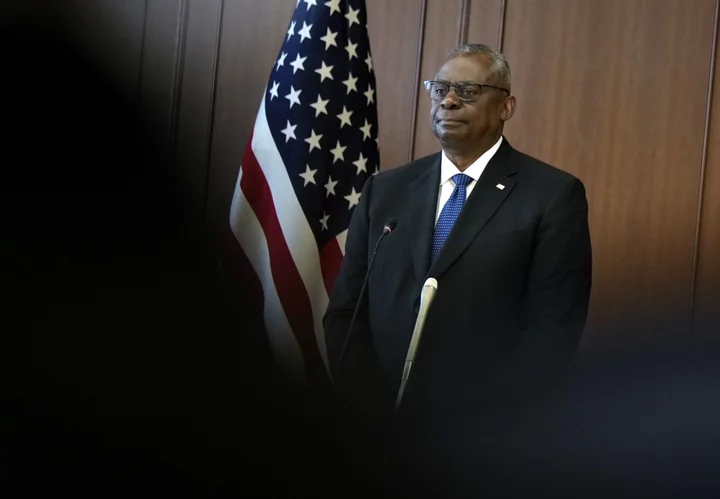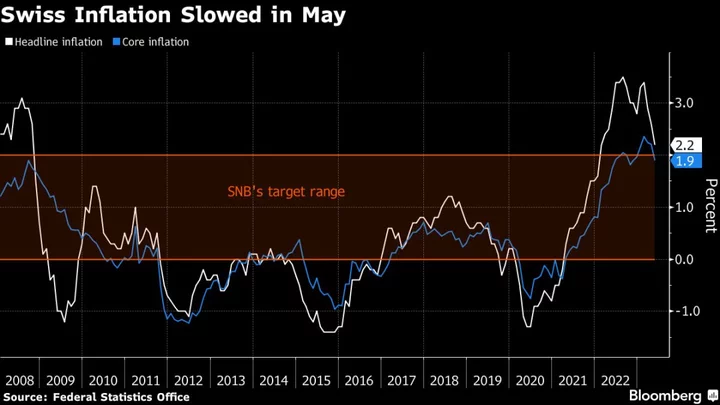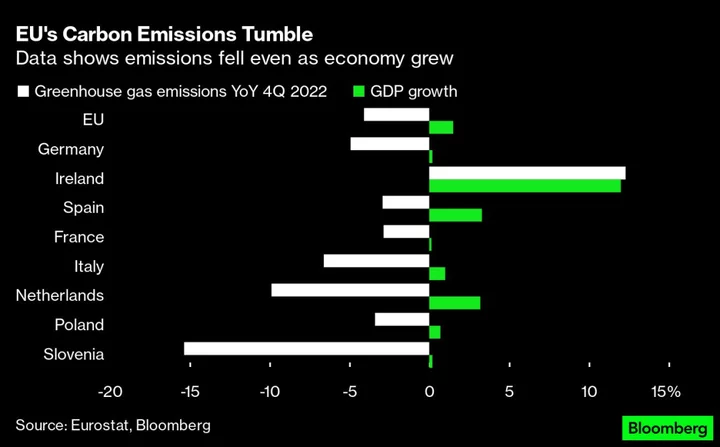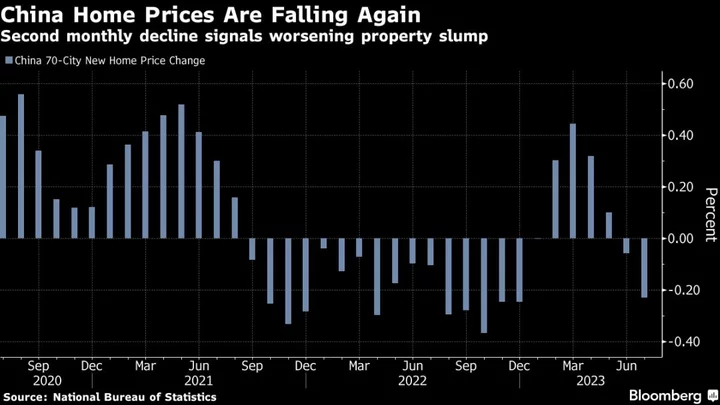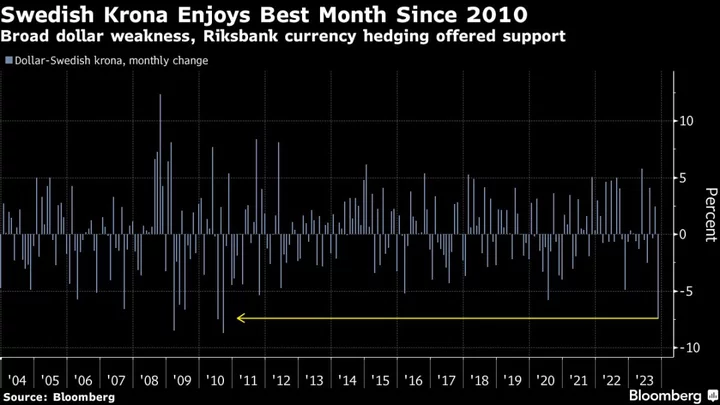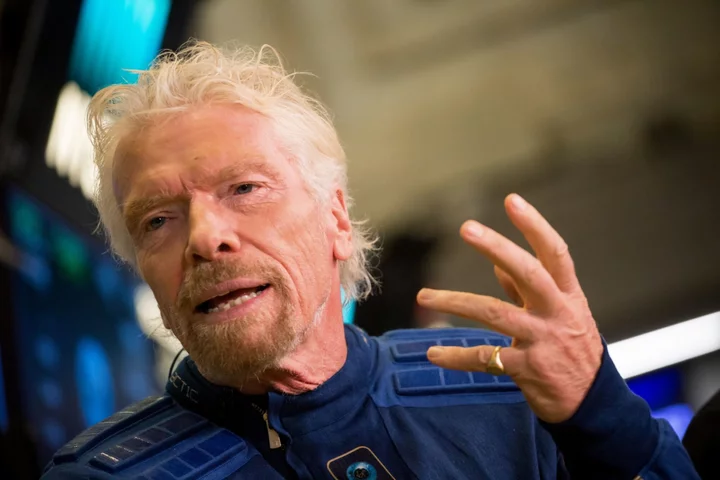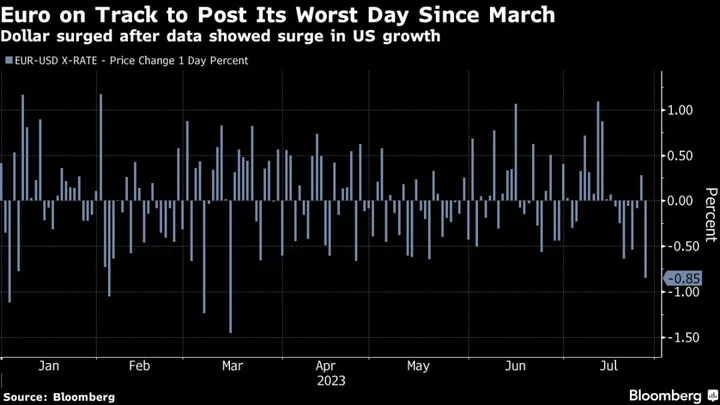Defense officials from around the world arrived in Singapore Friday, with US-China tensions over Taiwan, chip curbs and the South China Sea at the top of the agenda.
Pentagon chief Lloyd Austin and his Chinese counterpart, Li Shangfu, are among more than 600 military leaders, policy makers and analysts from 40 nations taking part in the annual Shangri-La Dialogue, hosted on what is essentially neutral ground in the widening rift between Beijing and Washington. The US says Beijing has already ruled out a meeting between the two military chiefs, with China frustrated the Biden administration hasn’t removed sanctions the US placed on Li in 2018.
Austin and Li’s attendance comes after the US tried and failed for months to set up direct communication between the two sides. And it follows a surge in tensions dating back to February, when an alleged Chinese spy balloon floated through American airspace — an episode that only fueled anxieties in Asian nations worried about being caught in the middle of a potential conflict between their two most important partners.
Latest coverage
- Fear of US-China Conflict Looms Over Singapore Defense Forum
- China’s Close Plane Encounter Shows Need to Talk, Blinken Says
- Singapore Says Aspects of US-China Rift ‘Appear Insurmountable’
- US Hits Roadblock in Bid to Renew China Ties: Its Own Sanctions
- China Woos Dimon, Musk Amid Pressure on Xi to Boost Economy
(All times local)
Decoupling Will Be ‘Disaster,’ Organizer Says (10:32 a.m.)
There’s more at stake in this summit than just the opening of military-to-military lines of communication key to avoiding a potential conflict down the road. The rest of Asia is looking to see whether the US and China can still coexist in an increasingly complex and multipolar global economy.
“The big question for those who are interested in the political economy of the region is where does ‘de-risking’ sit on the spectrum,” said John Chipman, director-general and chief executive of the International Institute for Strategic Studies, which is organizing the forum. “We know that business-as-normal on one side is not going to be possible. We know on the other side that full decoupling will be a disaster.”
Albanese Set to Deliver Keynote Speech (10:02 a.m.)
Australian Prime Minister Anthony Albanese kicks off the main set of events on Friday evening, with a keynote speech for leaders. Austin starts the day’s events on Saturday, with Li scheduled for Sunday.
Other participants include US Director of National Intelligence Avril Haines, UK Defense Minister Ben Wallace, Indonesian Defense Minister and potential presidential candidate Prabowo Subianto and senior officials for the militaries of Japan, the Philippines, Pakistan, India, South Korea and Canada.
Austin arrives after meeting top defense officials in Japan, which has vowed to ramp up security spending and is partnering with more allies in the region, including Australia. Li’s participation follows a decision to set up a military hotline with Singapore, essentially the same policy Washington has sought and failed to get from Beijing.
China Will ‘Never’ Renounce Using Force on Taiwan (8:37 a.m.)
China’s Defense Minister Li Shangfu told his Singaporean counterpart on Thursday that China “will never promise to renounce the use of force” in pursuing unification with Taiwan, echoing lines from President Xi Jinping’s speech during a twice-a-decade party conclave in October.
Li also said that China “will continue to strive for peaceful reunification with the greatest sincerity and greatest efforts, but we will never allow any attempt by the Democratic Progressive Party authorities to seek foreign support for Taiwanese independence, nor will we allow external forces to use Taiwan to contain China,” state media reported Friday, referring to Taiwan President Tsai Ing-wen’s ruling party.
--With assistance from Philip J. Heijmans, Alfred Cang, Peter Martin, Rebecca Choong Wilkins and Xiao Zibang.

